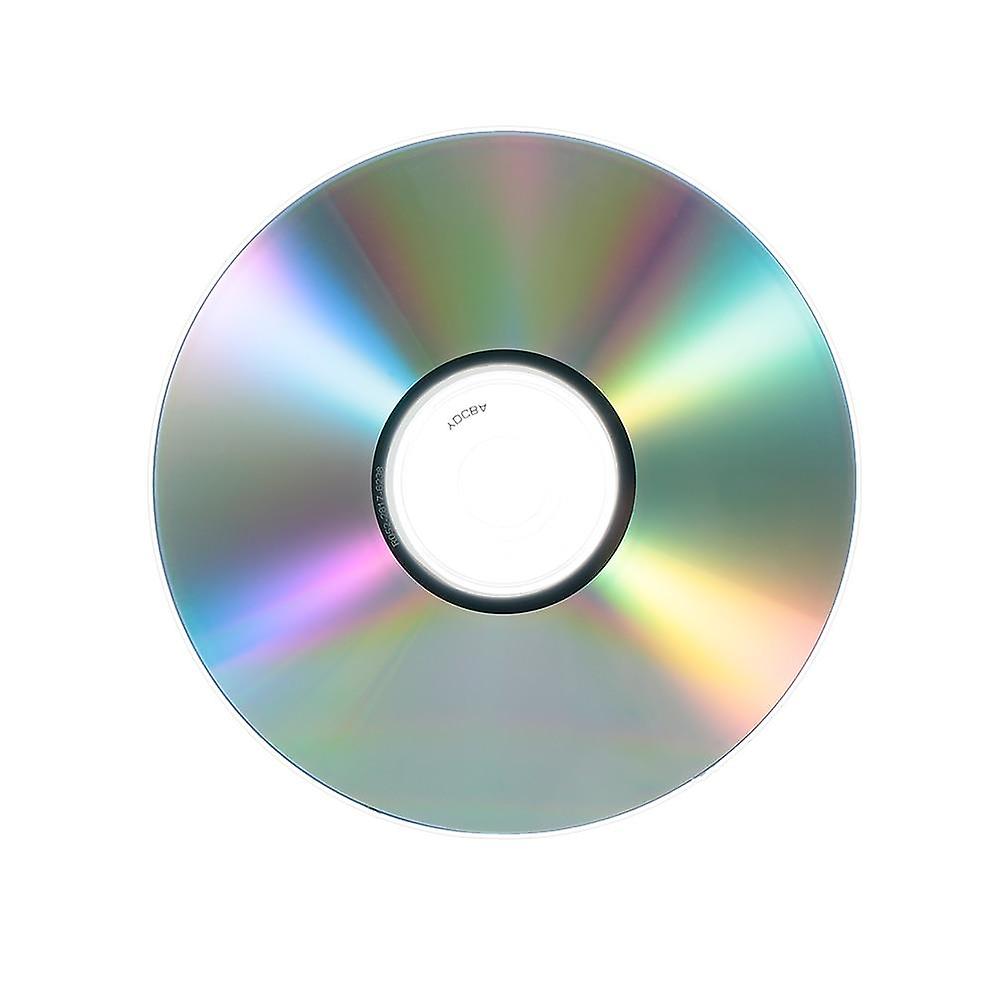It’s depressing knowing you own a license to access the digital file you purchased but that contract can be withdrawn at any time.
Besides you cannot replicate the same authenticity by showing your film library to friends and family when you sit down and scroll through your digital purchases.
No one ever exclaims “by the power of greyskull!” when I show them my plex library. So sad.
I actually think that you don’t lose much going from physical moves/tv to plex as most people are super used to scrolling through streaming, but man do I miss having big cases full of books. Handing someone a kindle to scroll through is a lot less fun lol
Physical media isn’t the ultimate format people like to make it out to be. I don’t think there’s anything wrong with digital media as long as it’s files on a hard drive. Honestly, it’s probably a better format for preservation than a disc that’s locked into whatever video format it was published in. In 1000 years, it’s pretty unlikely anyone will be able to read files from a DVD or Blu-Ray. But a file that’s been reformatted to keep up with modern technology? That’ll be useful.
Whenever I hear people talk about physical media as being “forever” I’m reminded of the episode of Cowboy Bebop where they have to steal a VHS player.
CDs themselves only last 100 years at most. Hard drives also fail. There really isn’t a great solution for something permanent unless you are changing its form/format every so often
There really isn’t a great solution for something permanent unless you are changing its form/format every so often
Right, that is what I meant by “reformatted to keep up with technology”, including copying it to new hardware that’s less likely to fail.
Hard drives fail more often than another computer component, at least the old-timey spinning hard drives. SSDs are better by far but I wouldn’t trust important files to any single hard drive for long term storage.
Optical discs don’t have that problem at all. They will be good as long as you keep them in a non-hot place out of bright lights. Heat and UV light and scratching are the enemies of optical discs, but they can all be avoided for as long as you care to keep them safe.
CDs don’t last that long. I had a buddy that worked for a radio program tell me that the tapes lasted a lot longer. This was mid 2000s and he was already seeing failures. I think they were fairly early adopters, but still it couldn’t have been that long.
Tape has been around for 80 years now and doesn’t seem to be going away anytime soon. Copying to a fresh tape once a decade should keep your data safe.
I think DRM free digital media is viable as well. A hard drive doesn’t have the lifespan of a blu-ray, but modern drives are good about warning of catastrophic failure, and I suspect most people that have digital media libraries migrate them to new storage as wanted/needed.
There’s something satisfying about physical media that digital lacks. I get that appeal. But I don’t think it’s superior for media preservation.
Crazy times we live in.
I’ve purchased a few DVDs / Blu Rays of some of my favorite stuff. But I’m also trying to get my hands on as many “good” CDs as I can. I’m not really trying to be a curator or librarian, I just see the shitshow on the horizon (and already here, honestly) as physical media and ownership of media in general ends and streaming becomes the only option.
And owning media will get more and more difficult unless one format shifts the media (rips it) before there is no more hardware to do this.
In a Fahrenheit 451 sense, Holy Grail might be the most well preserved film for the future generations, given the level of storage redundancy.
Well, maybe not DVD given the shelf life, but certainly Blu-ray and Ultra HD.
Blu-ray has about the same storage life as a DVD.
Millennium discs are a thing, though, where the data is burned into plastic rather than a film.
Actually, Blu-ray should have an obscenely long shelf life. If I understand correctly, it doesn’t use an organic layer for holding data and is a lot like an M-Disc in terms of lifespan.
Both of you are using very confusing terms. Physical disks are stamped plastic. The 0’s and 1’s are physically in the plastic as pits and lands.
The problems with earlier disks and bad production run disks are that reflective backing oxidizes. But the physical data is still stamped into the disk.
Bluray changed out the aluminium reflective layer for a silver alloy so it’s more resistive there.
I don’t know where you got organic from or the other guy, film?
I’d probably start with this which describes the m-disc, which is made for longterm cold storage. If you check out the wiki for bluray it talks about how some forms use organic methods of writing. Check out Types > Bluray Disc recordable section:
On September 18, 2007, Pioneer and Mitsubishi codeveloped BD-R LTH (“Low to High” in groove recording), which features an organic dye recording layer that can be manufactured by modifying existing CD-R and DVD-R production equipment, significantly reducing manufacturing costs.
In any case, optical discs are not really “stamped” it is generally burned using a type of laser, and usually on to an organic dye, though that is what the posters your replying to are talking about:
An optical disk recorder encodes (also known as burning, since the dye layer is permanently burned) data onto a recordable CD-R, DVD-R, DVD+R, or BD-R disc (called a blank) by selectively heating (burning) parts of an organic dye layer with a laser.
edit: also worth mentioning – my favorite podcast the Accidental Tech Podcast (which, be forewarned is Apple-centric) released an ep not too long ago discussing this. It’s part of their post-show on this ep and they use chapter markers, so you can skip basically right to it if you have a half decent podcast player. It’s not intended as an explainer video or anything, but having not thought about optical discs in quite a while it does serve as a half decent refresher.
No, optical disks are indeed stamped. You are talking about recordable disks. Which are different thing entirely.
oh, gotcha. I think once someone started talking about m-disc I basically defaulted to thinking about recordable discs.
So, I might have gotten this wrong, but it was my understanding that CDs and DVDs (at least the writable kind) use an organic (carbon-based) layer for data storage, which is why CDs and DVDs succumb to disc rot over time. Blu-ray, however, shouldn’t have that issue because they don’t use an organic layer. I might have misunderstood that though.
Writable cds and dvds use a bunch of different technologies, but they are an aside to the conversation here.
Disk rot when it’s used is generally always used when talking about pressed disks not writable disks. Dvds, cds and blurays all use variations on the same technology which is stamped plastic with a reflective layer at the back made out of a metal. No organics.
Thanks! I didn’t know that, I assumed normal discs were just pre-written [disc]-R with special printing on the label.
Does that mean pressed discs can be potentially fixed by carefully peeling off the metallic layer and applying a new one?
Welp future generations will think Adam Sandler was the premier actor of our times
Gizmo was always cool
I guess I’m in the minority as I was kind of glad to get rid of the CDs which I wasn’t listening to anymore.
I rarely watch the same thing over again. I find there’s some much stuff to watch these days, I couldn’t possibly watch it all.
I did digitize my CDs before giving them away which was hard to go as not many wanted them. This was just after Google Music took over Songza. I uploaded all my rips to GM then it was changed into YouTube Music and I’m not even sure how to access any of it now.
So I can see a world where the physical is important. Perhaps in the after times when things are being rebuilt again.
Physical is important now. A lot of the movies I watch just are not available on streaming services. You don’t notice they aren’t there because you don’t see them.
I know you see this as a “I like what I currently see, so it doesn’t matter” kind of equation, but it’s a real problem today.
It doesn’t help that the video quality of streaming is just not as good, too, so physical is preferable even in situations where things are available.
Great points. There are series I can’t stream that I’ve had to use alternative methods to view. Mr Belvedere and Parker Lewis isn’t on any streaming services. I’ve watched some pretty poor quality releases of them as a result and it’s tough to find the physical copies for these alone. I can’t imagine the rest that aren’t available. The worst is when digital copies purchased are not available due to changes in vendor rights in certain counties.
I don’t think I’m likely to ever go back to physical media, but I do maintain a collection of my own stuff on hard drives which is not something I can say for music any more. Fuck that reminds me, I probably need to dig out my dogma dvd and digitize that if it hasn’t already melted in my garage.
Maybe it’s a journey, I went away from physical media. Got mad, came running back. I’m tired of the streamers and their bullshit. Life is easier when you can buy something and you have it.
Oh I get it, the problem with this for me is the type of physical media. I’d much rather just have a bunch of hard drives and never have to worry about getting up from the couch or bringing a movie with me or any of that.
So I can see a world where the physical is important. Perhaps in the after times when things are being rebuilt again.
This sounds very good, I’m going to check it out, thank you.
In a post apocalyptic hellscape, my most valuable asset will be able to recite a famous film perfectly with voices and everything.
Won’t say which one. Let’s just say that
SOME-BODY ONCE TOLD ME …









